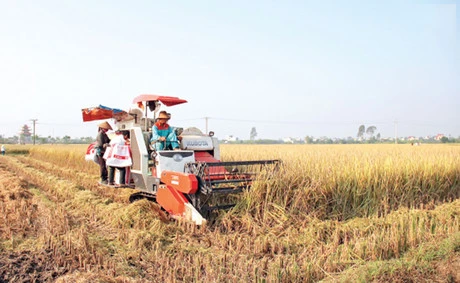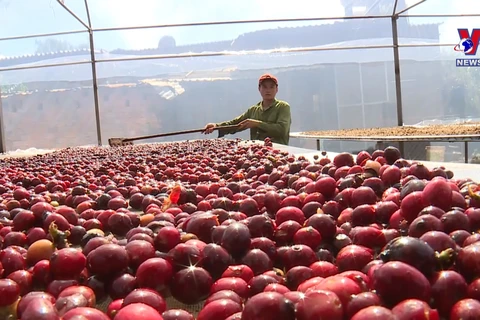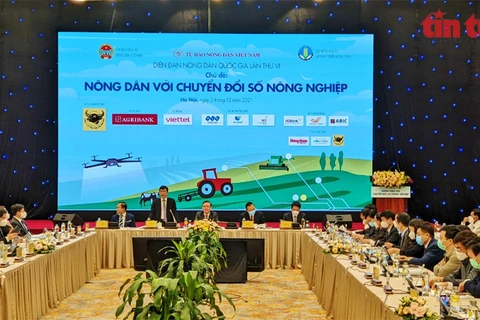Hanoi (VNA) – The Vietnam Farmers’ Union (VFU) and the Vietnam Post Corporation (VNPOST) organised a conference to realise their cooperation agreement in Hanoi on February 25.
Deputy General Director of VNPOST Nguyen Kien Cuong said between now and 2025, the coordination will focus on introducing goods and connecting product consumption; developing a supply chain of safe and high-quality agricultural products; building and developing sustainable value production chains in association with the national target programmes; and developing a network of sales collaborators and agents.
VNPOST will provide preferential products and services for the VFU and members of its chapters, professional associations, farmers' clubs, cooperative groups, and cooperatives.
The sides plan to help 7.5 million farming households from 10,600 wards and communes nationwide put on their products on e-commerce platform postmart.vn free-of-charge this year.
VNPOST is managing to update agricultural production households' information on the platform, as well as help farmers and agricultural cooperatives actively apply digital technology in their production and trading activities.
It plans to connect with postal e-commerce platforms in Japan, Singapore and other regional countries in the future, according to Chu Quang Hao, VNPOST General Director.
Vietnamese products on sale on postmart.vn are expected to be connected to the e-commerce platforms of countries in the region, towards expanding to developed countries, he said.
Hao stressed that the cooperation between VNPOST and VFU matches the current context, as the two sides are working to help farmers in digital transformation and economic development.
Last year, VNPOST delivered agricultural products abroad, especially Japan, Germany, Australia and Europe, and reaped initials results.
This will increase investment in cold storage warehouses in the region to better preserve products while partnering with agricultural processing businesses to upgrade technologies in service of domestic consumption and exports.
Apart from the e-commerce platform, VNPOST and VFU will build brick-and-mortar stores in localities.
More farmers have recently sold their products online in both domestic and foreign markets thanks to the support of postal service suppliers in putting farm produce on e-commerce platforms and promoting digital agriculture.
Ha Phong Cooperative in Bac Phong commune, Cao Phong district of Hoa Binh province is developing about 150 hectares of orange farms with a total output of about 1,000 tonnes.
To help farmers get used to selling their products online, staff from postal service suppliers have given direct guidance to them on their farms.
Deputy head of VNPOST’s Information and Communication Division Nghiem Tuan Anh said that along with direct instructions at farms, VNPOST has given online training to farmers through social networks to help them master the procedures of selling products on e-commerce platforms.
Meanwhile, Cao Cam Linh, Strategic Director at Viettel Post, said the firm has provided both direct and online training to over 2.5 million farmers.
Along with the process of selling products online, farmers have been instructed on how to take photos of their products for e-commerce platforms and conduct livestreams to interact with their customers. She added that Viettel Post staff have also come to farms to guide farmers on how to choose high-quality products and make proper packaging to ensure products are delivered to customers in the best condition.
At the same time, Viettel Post has also supported more than two million farmer households to sell 12,884 tonnes of products through over 36,000 transactions. With the assistance of VNPOST and Viettel Post, Bac Giang’s thieu lychees have been made available in foreign markets.
According to the Post Administration under the Ministry of Information and Communications, major postal service suppliers now have experience in transporting many kinds of farm produce and have successfully built their own logistics model specialising in agricultural products for both domestic and foreign markets.
Thanks to their strength in connecting communes and wards, they can work directly with farmers, making agricultural products’ prices more competitive./.
























